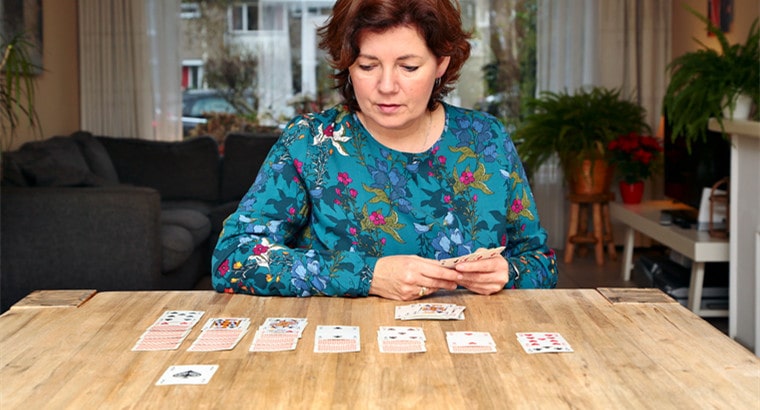In the realm of card games, one name stands out above the rest—Solitaire. Originating centuries ago, Solitaire has evolved from a mere pastime for the bored and idle to a game that has captured the hearts and minds of millions around the world. You can also experience the joy of playing solitaire on solitaires.com. Its simplicity, strategic elements, and addictive nature have made it a true classic. In this article, we will explore the fascinating journey of Solitaire, tracing its humble beginnings to its status as the ultimate game.
What sets Solitaire apart from other card games is its unique blend of simplicity and complexity. Its rules are easy to understand, requiring only a basic knowledge of card values and the ability to arrange them in specific sequences. This simplicity allows players to quickly grasp the fundamentals and start playing, regardless of their skill level.
Yet, beneath this seemingly straightforward surface lies a game of depth and strategy. Each move requires careful consideration, as players must analyze the current layout of the cards, weigh their options, and anticipate the consequences of their decisions. This blend of simplicity and strategic thinking is what makes Solitaire a truly brilliant game.
Join us on this captivating journey as we unravel the layers of Solitaire and discover how this seemingly simple game has become the ultimate game, transcending time and captivating generations with its brilliance.
The Origins of Solitaire
Solitaire’s precise origins are shrouded in mystery, with no specific individual or culture credited with its invention. However, the earliest known reference to a game resembling Solitaire dates back to the late 18th century in Scandinavia. This version of the game was played with a deck of cards and involved arranging them in specific patterns.
The game’s popularity spread throughout Europe during the 19th century, with different variations emerging in different countries. It wasn’t until the late 19th and early 20th centuries that Solitaire gained significant traction in the United States, thanks to its inclusion in various books and publications. As the game became more accessible, it slowly but surely found its way into the hearts of millions.
The Appeal of Solitaire
What sets Solitaire apart from other card games is its unique blend of simplicity and complexity. Its rules are easy to understand, requiring only a basic knowledge of card values and the ability to arrange them in specific sequences. This simplicity allows players of all ages and backgrounds to pick up the game with ease.
At the same time, Solitaire offers a level of strategic depth that keeps players engaged and coming back for more. Each move requires careful consideration, as players must analyze the current layout of the cards and anticipate the consequences of their decisions. This combination of simplicity and strategic thinking is what makes Solitaire a truly brilliant game.
Furthermore, Solitaire’s solitary nature is another factor contributing to its widespread appeal. Unlike most card games that require multiple players, Solitaire can be enjoyed in solitude. It offers a peaceful and contemplative experience, allowing players to unwind and escape from the demands of the outside world. The game’s ability to provide both entertainment and relaxation has made it a favorite pastime for countless individuals.
The Digital Revolution: Solitaire in the Computer Age
The true turning point in Solitaire’s journey came with the advent of the digital age. As personal computers became more prevalent in households around the world, Solitaire made a seamless transition from physical decks of cards to virtual versions on the screen.
One of the most significant milestones in Solitaire’s digital history was its inclusion in Microsoft Windows operating systems, starting with Windows 3.0 in 1990. The addition of Solitaire as a pre-installed game on millions of PCs revolutionized its accessibility. Suddenly, Solitaire was just a few clicks away for anyone with a computer, and its popularity skyrocketed.
The digital version of Solitaire offered several advantages over its physical counterpart. It eliminated the need for shuffling and dealing cards, streamlining the gameplay process. Additionally, the computerized version allowed players to track statistics, challenge themselves with different game modes, and compete against their own records.
Solitaire’s digital presence expanded even further with the rise of mobile devices. As smartphones and tablets became ubiquitous, Solitaire became a staple of app stores and gained millions of new players. Its simple yet addictive gameplay made it a perfect fit for quick gaming sessions on the go.
The Rise of Competitive Solitaire
While Solitaire is often associated with a solitary experience, the game has also experienced a surge in competitive play. Online platforms and mobile apps have introduced features such as leaderboards, timed challenges, and multiplayer modes, fostering a sense of competition among Solitaire enthusiasts.
These competitive elements have transformed Solitaire from a casual game into an esports phenomenon. Skilled players participate in tournaments, livestream their gameplay, and engage in friendly rivalries with others in the community. The emergence of competitive Solitaire has not only added a new layer of excitement to the game but has also brought players together, fostering a sense of camaraderie within the Solitaire community.
The Therapeutic Benefits of Solitaire
Beyond its entertainment value, Solitaire has also been praised for its therapeutic benefits. Many individuals turn to the game as a means of relaxation, stress relief, and mental stimulation. The repetitive nature of shuffling and rearranging cards can be soothing, while the mental focus required during gameplay can help alleviate anxiety and improve concentration.
In fact, Solitaire has been recommended by healthcare professionals and psychologists as a cognitive training tool. The game exercises memory, problem-solving skills, and logical thinking. Its positive impact on cognitive function has led to its inclusion in brain-training programs and as a therapeutic tool for individuals with cognitive impairments.
Ultimately
From its humble origins to its status as the ultimate game, Solitaire has proven to be a timeless classic. Its simple rules, strategic depth, and accessibility have captivated players for centuries. The digital revolution brought Solitaire to the masses, further expanding its reach and introducing new competitive and therapeutic dimensions to the game.
As we look to the future, it is clear that Solitaire will continue to enchant players of all ages, providing moments of brilliance in a world of leisure and entertainment.










